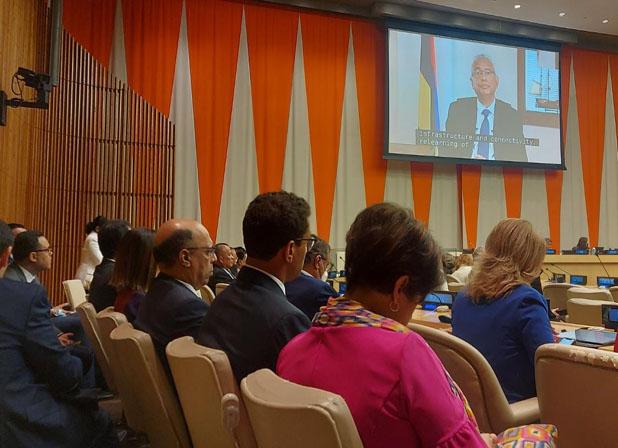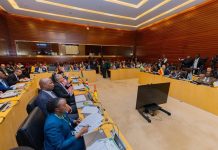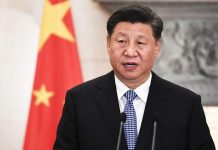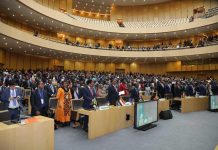
Africa-Press – Mauritius. Prime Minister Pravind Jugnauth addressed the Transforming Education Summit on Monday, September 19, 2022, in the wake of the 77th United Nations General Assembly in New York.
More than a hundred United Nations Member States took part in it to explore avenues for action and reflection in favor of the transformation of education and the development of youth in all its diversity.
In a video message broadcast at the United Nations headquarters, the Prime Minister affirmed that education remains a human right and that it must be accessible to the population in an equitable and inclusive manner.
The Head of Government added that, since 2015, Mauritius has been committed to achieving Sustainable Development Goal 4 which calls for quality education and lifelong learning opportunities for all.
To translate this objective into reality, the country devotes between 4% to 6% of its gross domestic product to education each year. The Prime Minister also spoke about the impact of COVID-19 on education.
The pandemic has triggered deep reflection that has resulted in pro-active actions to ensure the continuity and resilience of learning. Mr. Pravind Jugnauth explained that Mauritius has been able to develop and effectively implement strategies such as distance learning.
The government has paid particular attention to students from vulnerable groups so that they too can fully benefit from the accelerated digitization of the education system. The head of government listed a series of actions that Mauritius is consolidating with a view to inclusive education.
It is, in particular, a mechanism bringing together several education partners with a view to promoting schools adapted to the various specificities, in particular those of pupils who require special attention.
Mauritius is also committed to mobilizing the necessary resources to improve and harmonize pre-primary schools to ensure that every child can benefit from a quality education from an early age.
The digital learning infrastructure will be enhanced. This involves investing in infrastructure and connectivity, updating school curricula to reflect new realities and training teaching staff to meet the requirements of a new pedagogy.
Teachers will benefit from training at various levels with the integration of continuous professional development programs. The education provided should promote critical analysis and entrepreneurial skills in students.
It will also make it possible to develop socio-emotional skills that can consolidate societal and multicultural values. Education on climate change will also be called upon to occupy a more important place in the educational path of our young people.
For More News And Analysis About Mauritius Follow Africa-Press






